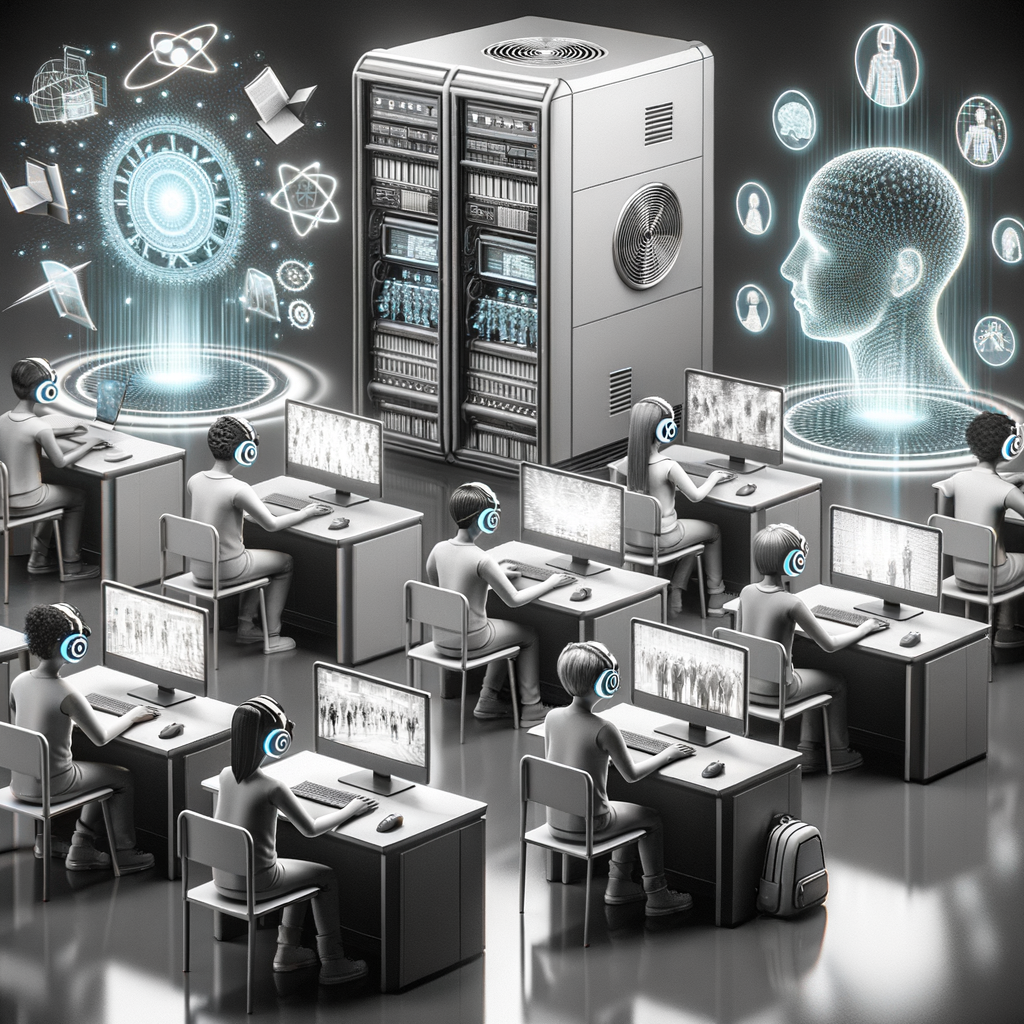
Unveiling the Future of Education: AI's Role in Personalized Learning Experiences
Explore how artificial intelligence is transforming the educational landscape by delivering personalized learning experiences that cater to individual student needs. Discover the latest AI technologies designed to enhance educational outcomes and promote student engagement.
Unveiling the Future of Education: AI's Role in Personalized Learning Experiences
Artificial Intelligence (AI) is no longer a distant promise; it is reshaping our world in real-time, and one of the areas it is having the most profound impact is education. From personalized learning paths to intelligent tutoring systems, AI in education is revolutionizing the way students learn and educators teach. This blog post explores the transformative role of AI in creating personalized learning experiences, ensuring no student is left behind.
The Traditional Education Model
Before delving into AI's contributions, it's essential to understand the traditional educational framework. Historically, education has been a one-size-fits-all model, where students follow a standardized curriculum. While this system has served societies for centuries, it often fails to address the individual learning needs and paces of each student. This is where AI steps in.
Personalized Learning: The Need of the Hour
Personalized learning is an approach that tailors instruction to meet the unique needs and learning styles of each student. It involves flexible pathways for students to learn at their own pace, offering them choices in how they learn and what they want to focus on. AI technologies enable this by analyzing student data and adapting instructions that best fit the learner's profile.
How AI Enhances Personalized Learning
1. Intelligent Tutoring Systems
AI-driven tutoring systems provide one-on-one support to students, identifying their strengths and weaknesses before personalizing the content accordingly. These systems can generate real-time feedback and adaptively adjust the difficulty level based on the learner's progress.
2. Adaptive Learning Platforms
Platforms like DreamBox and Knewton employ machine learning algorithms to analyze student interactions and performance. They modify the flow of lessons and recommend resources based on the student’s learning habits and results.
3. Smart Content Creation
Content creation tools powered by AI, such as natural language processing engines, automate the development of personalized educational content, transforming textbooks into digital, interactive experiences. These can include summaries, practice exercises, and quizzes tailored to individual learning paths.
4. Predictive Analytics
By analyzing vast amounts of educational data, predictive analytics can foresee potential learning outcomes and challenges, allowing educators to intervene timely and assist students who might be at risk of falling behind.
The Benefits of AI-Powered Education
The integration of AI in education offers numerous advantages, including:
- Enhanced Engagement: Personalized materials and interactive platforms motivate students and keep them engaged in the learning process.
- Efficiency in Learning: Customized learning pathways reduce time spent on topics learners have already mastered and allocate more resources to areas needing improvement.
- Accessibility: AI helps break barriers, making learning resources accessible to students with disabilities or those in remote areas.
Ethical Considerations and Challenges
Despite the myriad benefits, AI in education does not come without challenges. Privacy concerns regarding data collected from students, the digital divide in underserved communities, and the need for educators to adapt to new technologies are critical concerns that must be addressed.
Ensuring Data Privacy
It is imperative that AI systems prioritize student data protection, comply with legal standards, and maintain transparency to build trust among users.
Bridging the Digital Divide
Solutions must be tailored to ensure equitable access to technology and resources, especially in underprivileged areas.
The Road Ahead
As AI continues to evolve, so will its role in education. Future applications may include greater integration with Virtual Reality (VR) and Augmented Reality (AR) for immersive learning experiences, along with more advanced emotion recognition technologies that could adapt content not just based on performance but also emotional responses.
Conclusion
AI in education is set to provide more engaging, efficient, and inclusive learning experiences. By focusing on personalized learning, AI ensures that education systems are better equipped to meet the varied needs of the 21st-century learner, ultimately preparing them for a future where they can thrive.
With AI, education is not just about information transmission but transformation, where every student receives the guidance and resources tailored explicitly to their educational journey.